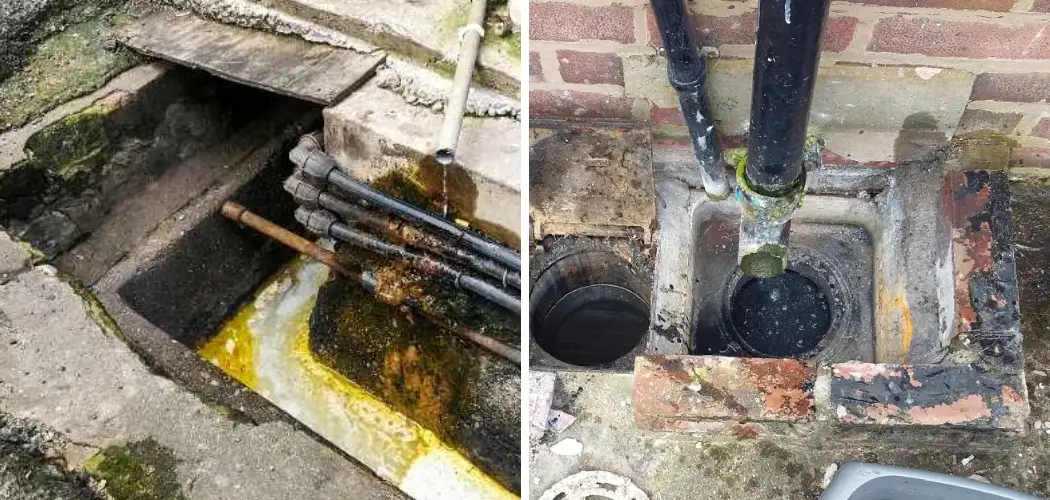There are several reasons why you should learn to stop outside drains smelling. In addition to the unpleasant odors, there are also potential health hazards associated with foul-smelling drains. These include the growth of bacteria and mold which can cause respiratory problems and other health issues.
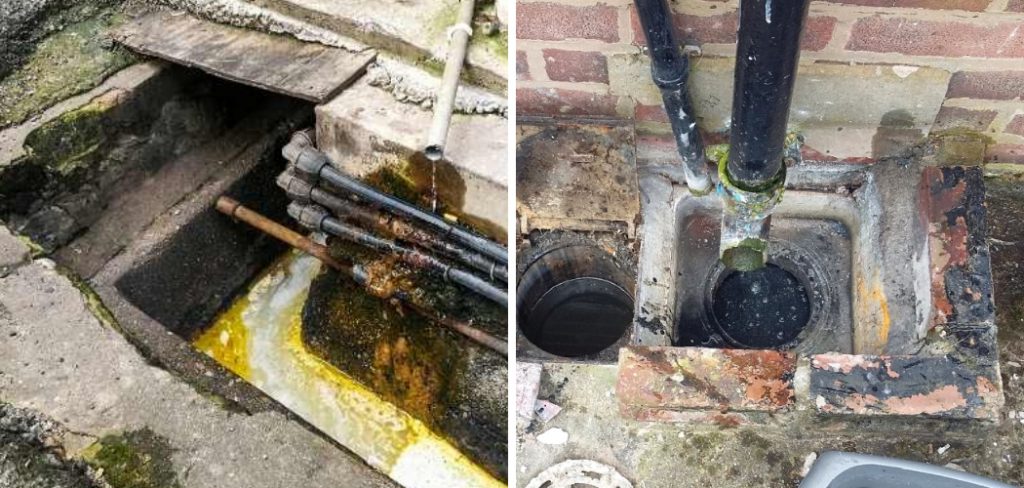
The main advantage of knowing to stop outside drains smelling is that it helps to prevent any unpleasant odours from infiltrating your home. This can happen when the sewer gases are not able to escape properly due to blockages or poor ventilation.
By addressing the issue at its source, you can avoid having to deal with foul smells in your house and keep your indoor air quality fresh and clean. In this blog post, You will learn in detail how to stop outside drains smelling.
Step by Step Processes for How to Stop Outside Drains Smelling
Step 1: Inspect the Drain
Drains are the main source of bad smells in homes. Start by inspecting your outside drains to determine where the smell is coming from and what may be causing it. Look for any visible blockages, debris or signs of mold or bacteria growth.
Step 2: Remove Debris
Use a drain cleaning tool such as a plunger or plumber’s snake to remove any debris that may be clogging the drain. Make sure to wear gloves and protective eyewear while doing this to avoid any potential hazards. After removing any visible blockages, flush the drain with hot water for a few minutes. This will help to clear out any remaining debris and bacteria that may be causing the smell.
Step 3: Use a Natural Cleaning Solution
If the smell persists, try using a natural cleaning solution such as baking soda and vinegar. Simply mix equal parts of baking soda and vinegar and pour it down the drain. Let it sit for about 15 minutes before flushing with hot water.
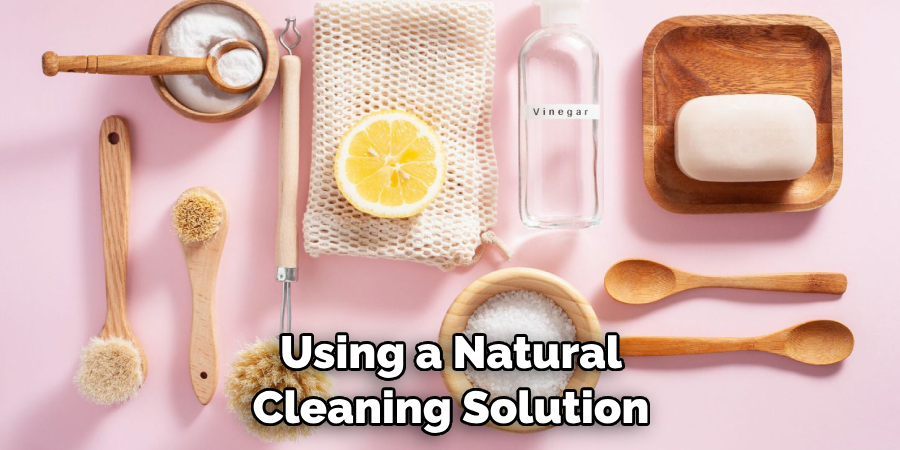
If the natural cleaning solution doesn’t work, you can try using a commercial drain cleaner. Make sure to follow the instructions carefully and use protective gear as these products can be harmful if not used properly.
Step 4: Check for Mold or Bacteria Growth
If the smell still persists, it may be due to mold or bacteria growth inside the drain. Use a flashlight to inspect the inside of the drain for any signs of growth. If you find any, use a mixture of bleach and water to clean the inside of the drain.
Enzyme cleaners are specifically designed to break down organic materials such as hair and soap scum that may be causing the smell in your drain. Follow the instructions on the product carefully for best results.
Step 5: Install a Drain Strainer
To prevent future blockages and bad smells, consider installing a drain strainer to catch any debris before it goes down the drain. This will also help to reduce the amount of cleaning and maintenance required for your outside drains. Make sure to regularly inspect and clean your outside drains to prevent any buildup of debris or bacteria. This will help to keep your drains smelling fresh and functioning properly.
Step 6: Seek Professional Help
If all else fails, it may be time to seek professional help. A plumber can inspect your outside drains for any underlying issues that may be causing the bad smell and provide a solution to fix it.
By following these steps, you can effectively stop outside drains from smelling and maintain a clean and pleasant environment in your home. Additionally, it is important to note that preventing bad smells in drains is an ongoing process and regular maintenance is key to avoiding any future issues.
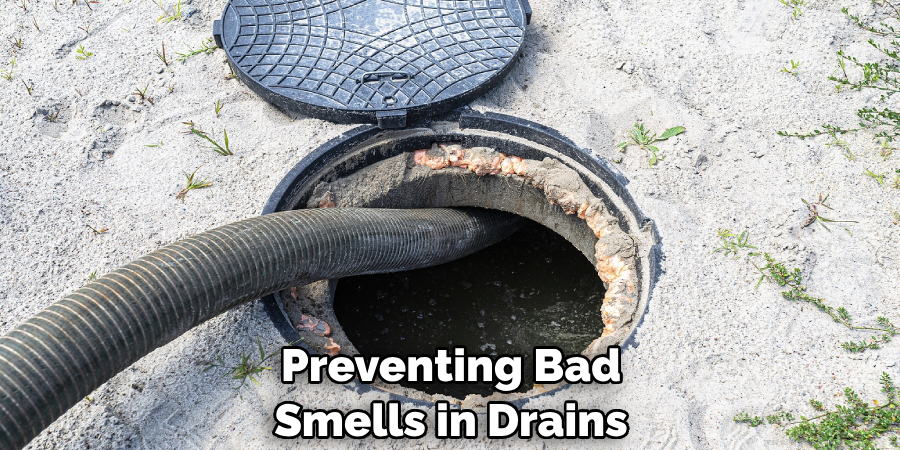
Precautions for How to Stop Outside Drains Smelling
- To ensure that there are no odors coming from your outside drains, it is important to regularly clean them. Remove any debris or blockages that may be causing the smell and use a cleaning solution specifically designed for drains to eliminate any bacteria or buildup.
- Sometimes, outside drains can develop small leaks which can lead to standing water and stagnant smells. It is important to regularly check your drains for any cracks or leaks and have them repaired promptly.
- Outside drains are often exposed to the elements, so it is important to keep them covered with a grate or mesh. This will prevent leaves, twigs, and other debris from falling into the drain and causing blockages.
- Another way to prevent odors coming from your outside drains is to regularly inspect and clean your gutters. Clogged gutters can cause water to overflow, which can then seep into your outside drains and create a foul smell.
- Hot water can help break down any buildup or bacteria in your outside drains, so it is recommended to pour boiling water down the drain once a week. This will also help prevent any blockages from forming.
- You can also try using natural remedies such as baking soda and vinegar to clean your outside drains. Simply pour half a cup of baking soda down the drain, followed by a cup of vinegar. Let it sit for 30 minutes before pouring hot water down the drain.
- If you have tried all these precautions and still notice a foul smell coming from your outside drains, it could be a sign of a bigger issue such as a broken sewer line. In this case, it is best to call a professional plumber to assess and fix the problem.
By following these precautions, you can ensure that your outside drains remain clean and odor-free. Regular maintenance and cleaning will not only prevent unpleasant smells but also prolong the life of your drains. Remember to always take precautionary measures to keep your home smelling fresh and clean.
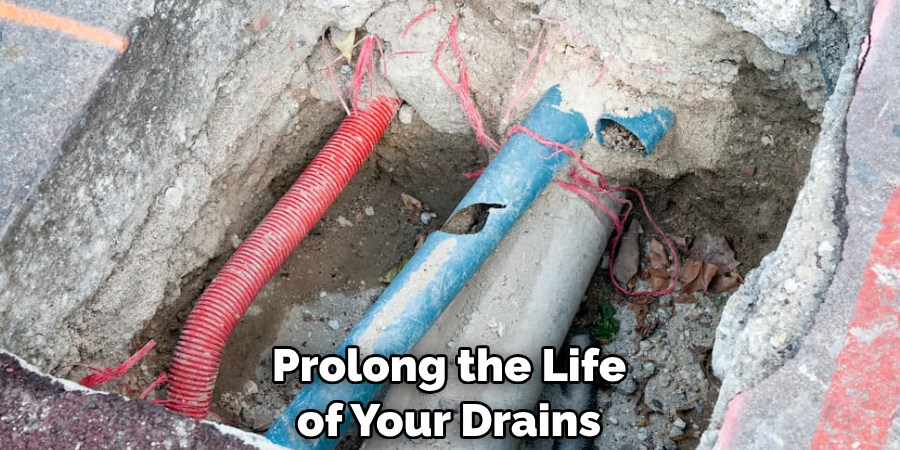
What Are the Causes of Outside Drains Smelling?
There are several possible causes for outside drains producing unpleasant odors. Some of the most common reasons include:
- Buildup of Debris and Waste: Over time, organic materials such as food scraps, hair, and soap scum can accumulate in outside drains. When this buildup is left unchecked, it can start to decay and produce foul-smelling gases.
- Clogged or Blocked Drains: If the drain is clogged or blocked, water and waste materials can become trapped and stagnant. This creates an ideal environment for bacteria to grow and produce odors.
- Damaged or Broken Pipes: Cracked, damaged, or broken drain pipes can allow sewage and other waste materials to leak out into the surrounding area. This can create a strong and unpleasant smell, especially if the leak is located near an outside drain.
- Sewage or Septic Tank Issues: If there are issues with the sewage system or septic tank, it can result in a backup of wastewater and sewage gases. This can cause outside drains to smell bad.
- Dry P-trap: The P-trap is a U-shaped pipe that acts as a barrier to prevent sewer gases from entering your home. If this trap dries out, it can allow gases to escape through the drain and produce a bad smell.
- Improper Venting: Proper venting is essential for allowing wastewater and sewage gases to escape from the plumbing system. If there are issues with the vents, such as blockages or damage, it can lead to unpleasant smells in outside drains.
To prevent these issues and keep your outside drains smelling fresh, it is important to regularly clean and maintain them. This can involve removing any visible debris or buildup from the drain, using a plunger or plumbing snake to clear clogs, and inspecting for any damage or leaks.
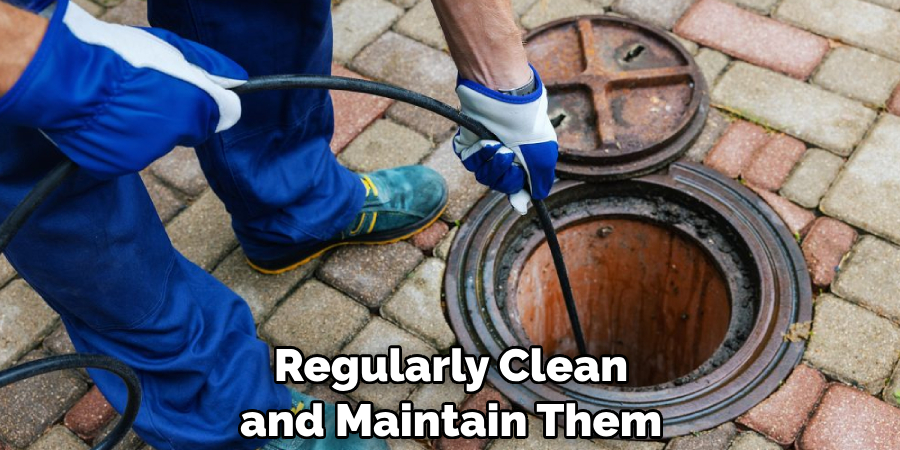
How Can You Properly Dispose of Food Waste to Prevent Outside Drain Smell?
It is important to properly dispose of food waste in order to avoid unpleasant smells outside your drain. Not only can these odors be annoying, but they can also attract pests and insects, creating a potential health hazard. There are several ways you can effectively dispose of food waste:
- Use a Garbage Disposal – If you have a garbage disposal in your kitchen sink, you can easily dispose of small food scraps by running them through the disposal. However, it is important to remember that not all types of food waste are suitable for a garbage disposal and may cause clogs or damage.
- Compost – Another environmentally friendly option is to compost your food waste. This involves collecting your food scraps in a compost bin and allowing them to decompose over time, creating nutrient-rich soil for your garden.
- Use a Food Waste Bin – Many cities and municipalities offer food waste bins as part of their recycling program. These bins are specifically designed to collect food waste, which is then sent to a composting facility.
- Freeze It – If you have large amounts of food waste that cannot be composted or put in a food waste bin, you can also freeze it until garbage day. This will prevent the waste from sitting in your trash can and emitting unwanted odors.
- Use Baking Soda – For smaller amounts of food waste that may be causing a smell, sprinkle some baking soda down the drain and let it sit for a few minutes before rinsing with hot water. Baking soda can help neutralize odors and freshen up your drain.
Remember to always follow proper disposal guidelines when disposing of food waste, as this not only helps prevent outside drain smells but also benefits the environment. Additionally, be mindful of what you put down your drain and avoid pouring any oils or grease that may also contribute to unpleasant smells.
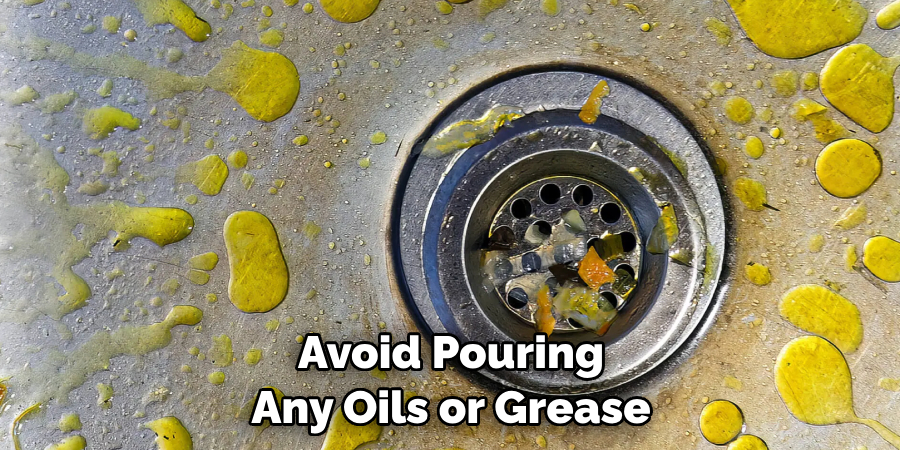
Are There Any DIY Methods for Getting Rid of Bad Odors From Outside Drains?
There are several DIY methods for eliminating unpleasant smells coming from outside drains. These methods can be used as an alternative to expensive commercial products and are effective in getting rid of bad odors. First, try pouring a pot of boiling water down the drain.
This will help loosen any debris or grime that may be causing the smell. Follow this with a solution of baking soda and vinegar. Mix half a cup of baking soda with one cup of white vinegar and pour it down the drain. Let it sit for about 10-15 minutes before pouring another pot of boiling water down the drain.
Another DIY method is to use lemon juice and salt. Mix equal parts of lemon juice and salt and pour it down the drain. The citric acid in the lemon juice helps break down any buildup in the drain while the salt scrubs away at it. Let it sit for 30 minutes before rinsing with hot water.
If the smell persists, you can try using essential oils. Mix a few drops of your favorite essential oil with baking soda and pour it down the drain. Let it sit for an hour before rinsing with hot water. Essential oils not only add a pleasant scent but also have antibacterial properties that can help eliminate any bacteria causing the bad odor.

Conclusion
In conclusion, keeping outside drains smelling fresh and clean is not a difficult task. By following the simple steps outlined in this blog, you can effectively prevent any foul odors from wafting into your home or outdoor living spaces.
Regularly cleaning and maintaining your drains by using natural cleaners like baking soda and vinegar can keep them free from buildup and blockages that can lead to unpleasant smells.
Additionally, implementing preventative measures like installing drain covers and regularly removing any debris or vegetation from around the drains can also help keep them smelling fresh.
Moreover, being mindful of what you pour down your drains can go a long way in preventing unpleasant smells. Avoid pouring grease, oil, and other harmful substances down your drains as they can cause buildup and clogs that lead to foul odors. I hope this article has been beneficial for learning how to stop outside drains smelling. Make Sure the precautionary measures are followed chronologically.

